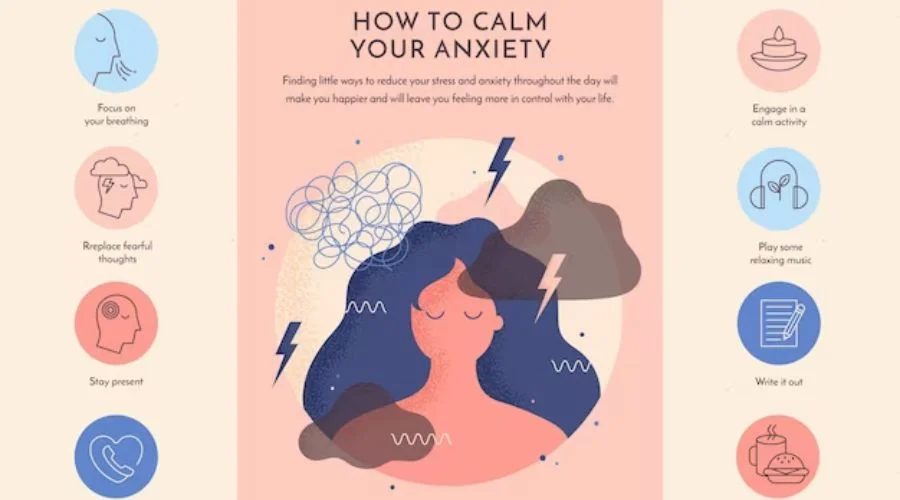Life can be stressful, and it’s no secret that stress and anxiety can have a significant impact on our mental and physical health. While there are many different ways to manage stress and anxiety, one activity that has been shown to be particularly effective is music. Whether it’s playing an instrument, singing, or just listening to your favorite tunes, engaging with music can help reduce stress levels, promote relaxation, and improve overall well-being. In this article, we’ll explore how music activities can be used as a powerful tool for stress and anxiety management in adults. So, whether you’re a seasoned musician or simply looking for a new way to unwind, read on to discover the many benefits of incorporating music into your daily routine.
How music can reduce stress and anxiety
Stress and anxiety are common experiences for many people, and they can have a significant impact on our mental and physical health. While there are many different ways to manage these feelings, music has been shown to be a powerful tool for reducing stress and anxiety. When we listen to music, our brains release dopamine, a chemical that helps us feel good and reduces feelings of stress and anxiety.
Research has also shown that listening to calming music can reduce the levels of the stress hormone cortisol. In one study, participants who listened to music before a stressful event had significantly lower cortisol levels than those who did not listen to music. Additionally, music can help distract us from our worries and negative thoughts, providing a welcome break from the stresses of life.
Music therapy and its benefits
Music therapy is a specialized form of therapy that uses music to support the physical, emotional, and mental well-being of individuals. It is often used as a treatment for those experiencing stress, anxiety, depression, and other mental health conditions.
Research has shown that music therapy can be effective in reducing stress and anxiety levels in adults. In one study, participants who received music therapy had significantly lower levels of anxiety and depression than those who did not receive therapy. Additionally, music therapy has been shown to improve sleep quality, increase feelings of relaxation, and reduce symptoms of post-traumatic stress disorder (PTSD).
Types of music activities that can help reduce stress and anxiety
There are many different types of music activities that can help reduce stress and anxiety in adults. Whether you prefer to sing, play an instrument, dance, or simply listen to music, there is an activity that can help you unwind and relax.
Singing as a stress-reliever
Singing can be a powerful stress-relieving activity. When we sing, our bodies release endorphins, which are natural painkillers and mood elevators. Additionally, singing can help us regulate our breathing, which can be especially helpful for those experiencing anxiety.
Whether you prefer to sing alone or with others, there are many ways to incorporate singing into your daily routine. You can join a local choir or singing group, sing along to your favorite songs in the car, or even just sing in the shower.
Playing musical instruments to reduce stress and anxiety
Playing a musical instrument can be a fun and effective way to reduce stress and anxiety. When we play an instrument, our brains release dopamine, which can help us feel good and reduce feelings of stress and anxiety.
Whether you’re a seasoned musician or just starting out, there are many instruments to choose from, including guitar, piano, drums, and many more. You can take lessons from a local music teacher, or use online resources to teach yourself.
Dancing and its benefits in reducing stress and anxiety
Dancing is a great way to reduce stress and anxiety while also getting some exercise. When we dance, our bodies release endorphins, which can help us feel good and reduce feelings of stress and anxiety. Additionally, dancing can help us regulate our breathing and improve our posture, which can also be beneficial for those experiencing anxiety.
Whether you prefer to dance alone or with others, there are many ways to incorporate dancing into your daily routine. You can take a dance class at your local gym or community center, or simply turn on some music and dance in your living room.
Mindful listening as a stress-reducing activity
Mindful listening is a great way to reduce stress and anxiety while also improving our focus and concentration. When we listen to music mindfully, we focus on the sounds and rhythms of the music, allowing us to be fully present in the moment and quiet our minds.
To practice mindful listening, choose a piece of music that you enjoy and listen to it without any distractions. Focus on the sounds and rhythms of the music, and allow yourself to become fully immersed in the experience.
Combining music activities with other stress-reducing techniques
While music activities can be powerful tools for reducing stress and anxiety, they are often even more effective when combined with other stress-reducing techniques. Some techniques that can be used in combination with music activities include deep breathing, meditation, and mindfulness.
To incorporate these techniques into your routine, try taking a few deep breaths before starting a music activity, or practicing mindfulness while listening to music. You can also try combining music with other stress-reducing activities, such as yoga or tai chi, for even greater benefits.
Conclusion
In conclusion, music activities can be a powerful tool for reducing stress and anxiety in adults. Whether you prefer to sing, play an instrument, dance, or simply listen to music, there is an activity that can help you unwind and relax. By incorporating music into your daily routine and combining it with other stress-reducing techniques, you can improve your overall well-being and live a happier, healthier life. So why not start today? Put on your favorite song, sing along, and feel the stress melt away.

